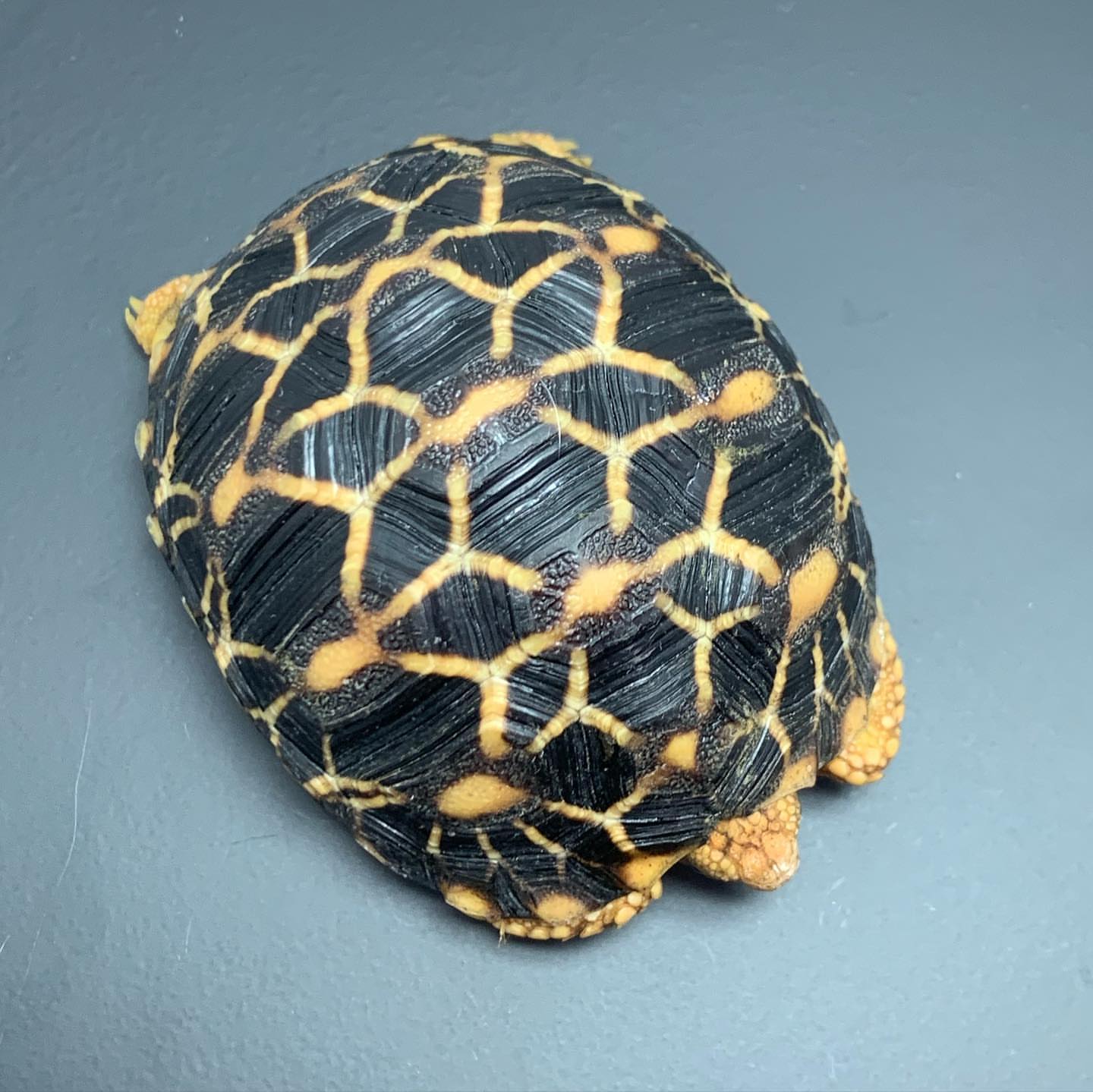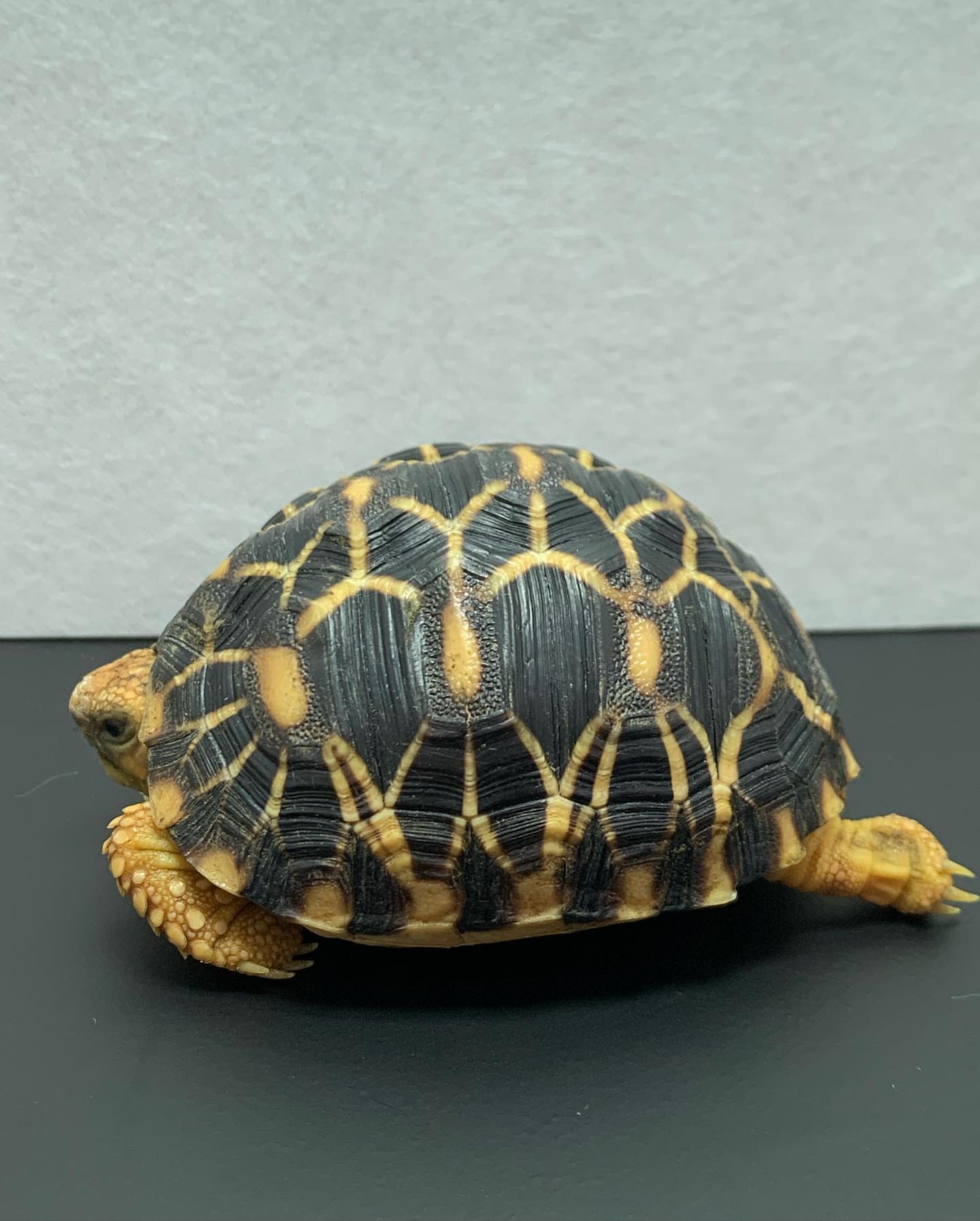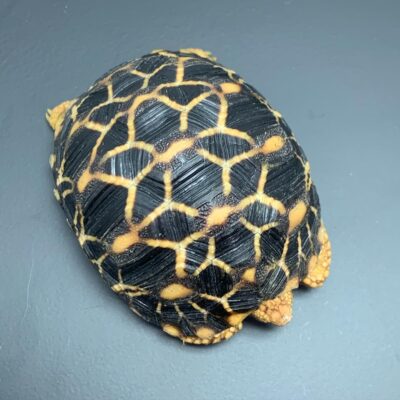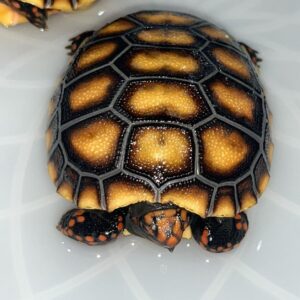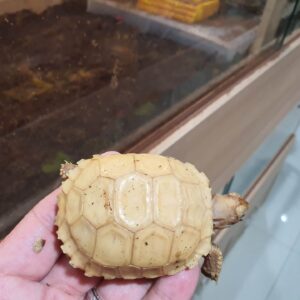Sri Lankan Tortoise For Sale
$299.99
Sri Lankan Tortoise care
Keeping baby Sri Lankan tortoise is quite simple. It is recommended to read the Indian Star tortoise care sheet. Our Indian Star tortoise care sheet provides a wealth of information. The sheet of care covers everything from Indian tortoise star habitats to general maintenance. Additionally, it includes an excellent tortoise-safe food list, and much more.
Sri Lankan Tortoise Habitat:
The keeping of anywhere between 4 to Sri Lankan tortoises is possible by a variety of methods and with a small area. Sri Lankan Star tortoise hatchlings can be kept in any place from an aquarium an open-top tub to a box for sweaters.
Maintaining a your baby Star tortoise is simple as that you adhere to the proper parameters. In this article, we’ll briefly cover the most important aspects that are crucial in raising a happy, healthy baby star tortoise that will eventually become an attractive mature Star tortoise.
If you are looking for Sri Lankan Star tortoise hatchlings We suggest something within the size between 24”x12” at minimum and no more than 2’x4′ up to the time they reach at least an 18-month old.
A compact habitat will allow you to set the parameters with ease while keeping the space that is small enough for your tortoise’s safety and not feel “lost”.
Description
Sri Lankan Tortoise care
Keeping baby Sri Lankan tortoise is quite simple. It is recommended to read the Indian Star tortoise care sheet. Our Indian Star tortoise care sheet provides a wealth of information. The sheet of care covers everything from Indian tortoise star habitats to general maintenance. Additionally, it includes an excellent tortoise-safe food list, and much more.
Sri Lankan Tortoise Habitat:
The keeping of anywhere between 4 to Sri Lankan tortoises is possible by a variety of methods and with a small area. Sri Lankan Star tortoise hatchlings can be kept in any place from an aquarium an open-top tub to a box for sweaters.
Maintaining a your baby Star tortoise is simple as that you adhere to the proper parameters. In this article, we’ll briefly cover the most important aspects that are crucial in raising a happy, healthy baby star tortoise that will eventually become an attractive mature Star tortoise.
If you are looking for Sri Lankan Star tortoise hatchlings We suggest something within the size between 24”x12” at minimum and no more than 2’x4′ up to the time they reach at least an 18-month old.
A compact habitat will allow you to set the parameters with ease while keeping the space that is small enough for your tortoise’s safety and not feel “lost”.
Sri Lankan Tortoise Humidity
Humidity is crucial when it comes to keeping an animal that is healthy and happy. Humidity does not just affect the general health of your tortoisebut it can directly impact the appearance of your pet too. Shells that have high pyramids are a result of either one or two factors or a combination both. Humidity should remain at a level of between 72 and 75 percent for babies star tortoises to be sold. After a mature age, humidity is able to be maintained at 50% in the case of an adult Star tortoise.
The goal of keeping humidity within a safe range can help in your child Sri Lankan Star tortoise for sale growing in a healthy way. If humidity drops below 60% for a prolonged time period and it can result in the formation of a pyramid-shaped shell and dehydrated tortoise. We prefer to keep our infant Sri Lankan star tortoises as well as our newborn Burmese star tortoise in closed systems with the air moving very little.
Little Sri Lankan Star tortoises love humid, low-movement air.
The low rate of movement and the high level of humidity with a humidity of 75% is the way we manage our newborn Sri Lankan Star tortoise groups. This helps them expand evenly, and to develop super smooth shells. The humid air, with its low velocity and a warm ambient temperature can allow them to grow extremely quickly. However their shells stay and become smoother like the bowling ball.
Sri Lankan tortoise diet & food list
Variety is the spice of life, according to them and that is certainly the most crucial element of what you feed your newborn Sri Lankan star tortoise. Giving your brand new Sri Lankan star tortoise hatchling an array of premium fresh vegetables and greens is the key to successful. Sris as we refer to them truly love diverse food choices and here at tortoise town are always feeding many different fresh greens.
Tortoise Town prepares our infant tortoise’s food every day by cutting various greens. The greens we provide to our tortoise baby include romaine, kale as well as collard and mustard , greens and radicchio and mustard, diverse types of lettuce and dandelions.
We also cut into yellow squash, and chop carrots using our blender. We then put them in our tortoise salad, as we like to call it. Making the mazuri tortoise chow with water till it becomes soft and then tossing it with the salad greens is highly suggested.
Making use of Mazuri in feeding your star tortoise can also make up for the absence of UVB in the winter months. If you are looking for a brand fresh baby tortoise ensure you pick Tortoise Town!
Sri Lankan tortoise Lighting and UVB
Your new baby Star tortoise with the correct UVB levels is crucial to ensure proper development. Without UVB levels, it is likely that the Sri Lankan star tortoise will not be able to create and absorb vitamin D on its own. Furthermore calcium absorption decreases when you have less UVB exposure.
To ensure a healthy, strong baby tortoise, it’s important to give your baby a small amount of Vitamin D. How can I achieve this? Simply by giving the baby Star tortoise with proper UVB lighting. We suggest a T5 high output tube UVB lamp. UVB output is far superior than the cheaper Coiled lamps or mercury Vapor lamps. Also, keep in mind that the source of light isn’t always your source of heat. The heat source can be found through a heat panel, an element of heating, or an additional spot lamp type heater.
Sri Lankan tortoise to be sold – Heating
The source of heat can be found through an energy panel, or a ceramic heating element or a spot lamp-style heater. We here at tortoisetown prefer CREs or heat panels (Ceramic Energy Source). Maintaining the hot spot at 92 degrees is the ideal. Make certain that the colder part in the Sri Lankan tortoise habitat is kept at 77-80°C throughout the day.
In the evenings temperatures could drop to the range of 75-77 provided that humidity is in order and air circulation is minimal. If the humidity falls less that 60% you can try to keep the temperatures within the range of 80 degrees.
Baby Sri Lankan Star tortoise Water
Always make sure you provide fresh shallow, clean water for your baby Sri Lankan tortoise for auction. If you keep the juvenile Sri Lankan star tortoise, or even a young adult Sri Lankan star tortoise, access to water is still vital. For babies, we soak them twice daily for 7 minutes in extremely shallow water. Also, be cautious when you are soaking your baby. They can drown quite quickly!
Sri Lankan Star Tortoise Food
At TT, we feed all of our adult and baby tortoises with the same mixture of a range of vegetables, greens and other veggies. Our typical “chopped salad” comprises with chops of Collard Greens, Mustard Greens, Yellow Squash, Softened and moist Mazuri tortoise chow chopped carrots, and the occasional tomato.
Baby Star tortoise for sale
The baby Sri Lankan tortoise are adorable as could be, however they require proper care in order to flourish. When setting up a space for baby star the most crucial thing is humidity. Our biologist recommends that low humidity and high air flow are essential to the success.
In a climate with limited air flow as well as high levels of humidity infant Sri star tortoises are sure to flourish. It was widely believed, many years ago that all kinds of Star tortoise, including Sri one, required extremely dry air. While this might be true for well-established adult, but we’ve observed the Sri Lankan tortoise babies require a humid environment.

